June 19, 2025 | 17:20 GMT +7
June 19, 2025 | 17:20 GMT +7
Hotline: 0913.378.918
June 19, 2025 | 17:20 GMT +7
Hotline: 0913.378.918
On March 15, in Rach Gia City, Kien Giang province, the US Diplomatic Mission in Vietnam, led by USAID, in partnership with the Department of Fisheries (Ministry of Agriculture and Rural Development) and Mekong Delta provinces, jointly organized the launch ceremony of the Project to Protect the Coastal Ecosystem in the Mekong Delta. Kien Giang and Soc Trang have been selected as the two provinces in the Mekong Delta region to implement and benefit from this project.
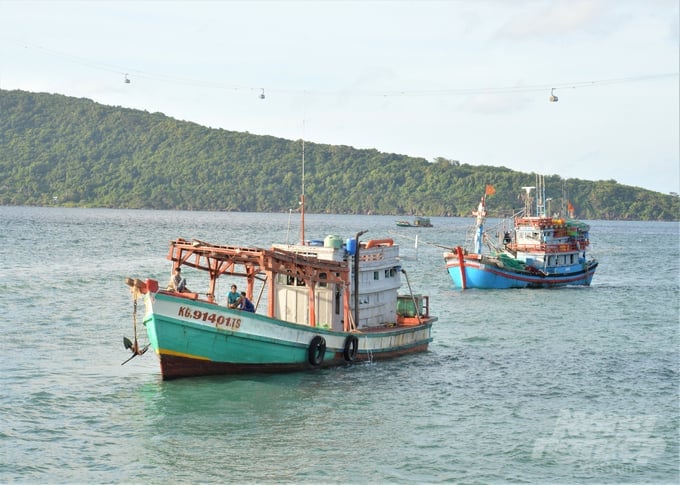
The Mekong Delta Coastal Ecosystem Protection Project aims to provide alternative livelihoods for coastal communities. Photo: Trung Chanh.
This initiative falls under a technical assistance project dedicated to safeguarding coastal ecosystems in the Mekong Delta, utilizing Official Development Assistance (ODA) funds from the US Government, administered by USAID for Vietnam through IUCN. With a budget of $2.9 million, the project aims to support efforts to mitigate threats to biodiversity and coastal fisheries resources, while also bolstering resilience to climate change impacts in the coastal areas of the Mekong Delta region.
Ms. Aler Grubbs, Director of USAID in Vietnam, emphasized, "This project reflects the US Government's commitment to ensuring a sustainable and prosperous Vietnam." Ms. Grubbs highlighted that the Mekong Delta is crucial in ensuring food security, particularly in rice and seafood production. However, the region is facing significant challenges due to rising sea levels resulting from climate change, degrading mangrove forests and adversely impacting the livelihoods of coastal communities.
The project is implemented with partners including Vietnam's central agencies, local governments, businesses, management boards of marine protected areas, development partners, and fishing communities.
"Today's launch of the project aligns with our mutual priority with Vietnam to enhance resilience to climate change in the Mekong Delta region - a region of paramount importance that is increasingly vulnerable. This initiative further strengthens the comprehensive strategic partnership between Vietnam and the United States," remarked USAID Vietnam Director Aler Grubbs during the event.
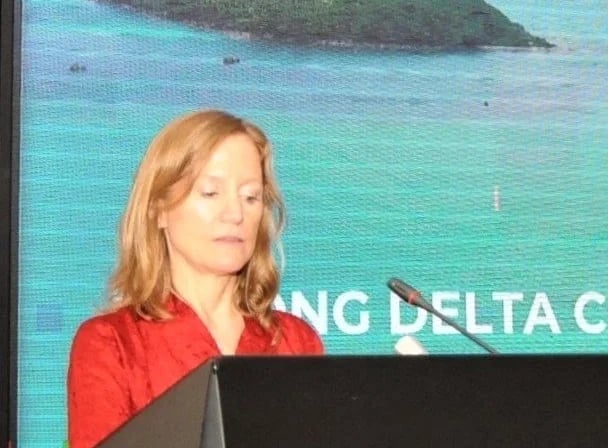
Ms. Aler Grubbs, Director of USAID in Vietnam, affirmed: "The project is the US Government's commitment to a sustainable and prosperous Vietnam." Photo: Trung Chanh.
Mr. Truong Thanh Hao, Deputy Director of Kien Giang Department of Agriculture and Rural Development, highlighted Kien Giang's position as a province with inherent strengths in marine economic development, boasting the largest fishing fleet in the country. While fishery activities have significantly contributed to socio-economic progress and provided livelihoods for tens of thousands of provincial workers, challenges persist. Illegal fishing practices, including the use of destructive gear, continue to harm the marine environment and deplete aquatic resources, leading to a decline in production.
The project to protect coastal ecosystems in the Mekong Delta is concentrated in selected areas within Kien Giang and Soc Trang provinces. It aims to safeguard and sustainably utilize aquatic resources while fostering the development of the fisheries sector.
This initiative holds profound significance as it adopts measures and implements management models with the participation of multiple stakeholders to address resource management challenges. It aims to mitigate threats to biodiversity, the environment, and coastal fisheries resources while combatting illegal, unreported, and unregulated (IUU) fishing.
Kien Giang has proposed to USAID in Vietnam that with the project aimed at protecting coastal ecosystems in the Mekong Delta, attention should be directed towards researching and sponsoring programs and projects related to reducing carbon emissions. This initiative aims to contribute effectively to implementing the "Sustainable Development of 1 Million Hectares Specializing in High-Quality Rice Cultivation with Low Emissions Associated with Green Growth in the Mekong Delta by 2030" project. Additionally, there is a call to invest in enhancing the capacity of the Mekong Delta's grassroots fishery extension system to meet the evolving situation's demands.
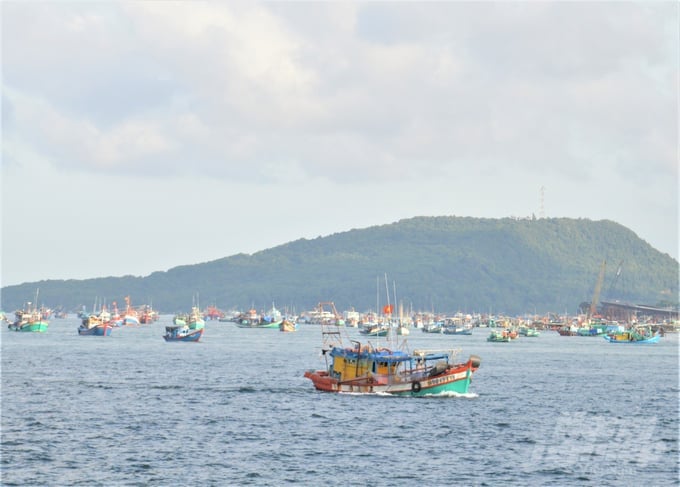
The Mekong Delta Coastal Ecosystem Conservation Project targets the most vulnerable coastal areas, including the Phu Quoc Marine Protected Area and islands and archipelagos in the West Sea. Photo: Trung Chanh.
Mr. Huynh Ngoc Nha, Director of Soc Trang Department of Agriculture and Rural Development, emphasized that the province boasts a 72km long coastline, teeming with diverse aquatic species. Regarding aquaculture, the province's annual brackish water shrimp farming area spans approximately 50,000 hectares, yielding an average output of 200,000 tons, with seafood export turnover reaching about $1 billion USD.
However, the impacts of climate change are increasingly apparent, with serious occurrences of landslides, particularly in coastal districts such as Cu Lao Dung, Tran De, and Vinh Chau town. Each year, oceanic waves devastate dozens of hectares of forests, with 42.6 hectares of mangrove forests eroded in Vinh Chau town alone in 2023. Soc Trang earnestly hopes for the swift and effective implementation of the project in their area, alongside Kien Giang province, to contribute to the initiative's overarching goal.
The Mekong Delta and coastal ecosystems harbor 70% of mangrove forests and 90% of seagrass beds in Vietnam, fostering the richest aquatic resources in the country. These resources provide livelihoods for coastal communities while mitigating the impacts of natural disasters. Nonetheless, these habitats and numerous commercially significant aquatic species face threats from overexploitation and unregulated development, posing long-term repercussions for livelihoods and lives.
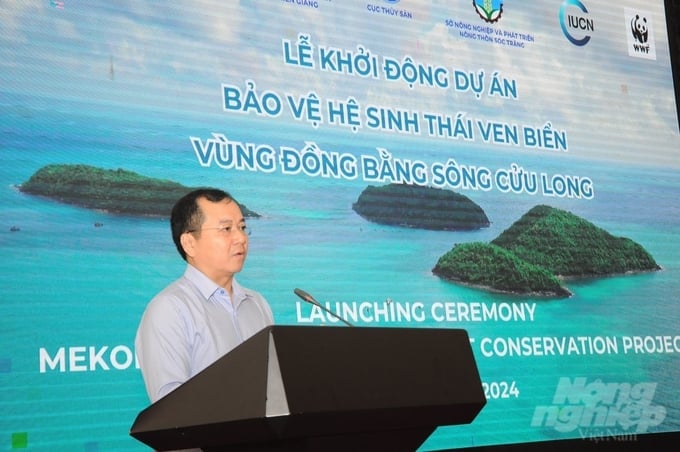
Mr. Tran Dinh Luan, Director of the Department of Fisheries, spoke at the project launching ceremony. Photo: Trung Chanh.
Mr. Tran Dinh Luan, Director of the Department of Fisheries, stressed the focus of the project's activities on the provinces of Kien Giang and Soc Trang. Its objective is to assist localities in addressing management deficiencies and challenges related to the utilization and exploitation of aquatic resources, while also minimizing threats to biodiversity, the environment, and aquatic ecosystems. Additionally, the project aims to foster alternative livelihoods for coastal communities. The outcomes of the project will be disseminated throughout the Mekong Delta provinces via workshops, forums, and conferences, thereby enhancing the efficacy of aquatic resource management and bolstering coastal resilience for sustainable development in the region.
Dr. Andrew Wyatt, Director of the MDC Project, emphasized that the decline of mangrove forests, which play a crucial role in regulating microclimate, is exacerbating these issues. Climate change threatens natural shrimp and fish resources and accelerates land subsidence.
To address these urgent concerns, the Mekong Delta Coastal Ecosystem Conservation Project targets the most vulnerable coastal areas, spanning from the East Sea to the West Sea. These include the Phu Quoc Marine Protected Area and archipelagos such as Hai Tac, Ba Lua, Nam Du (in Kien Giang province), and Vinh Chau and Cu Lao Dung (in Soc Trang province). The project is dedicated to safeguarding and enhancing the resilience of these vital ecosystems.
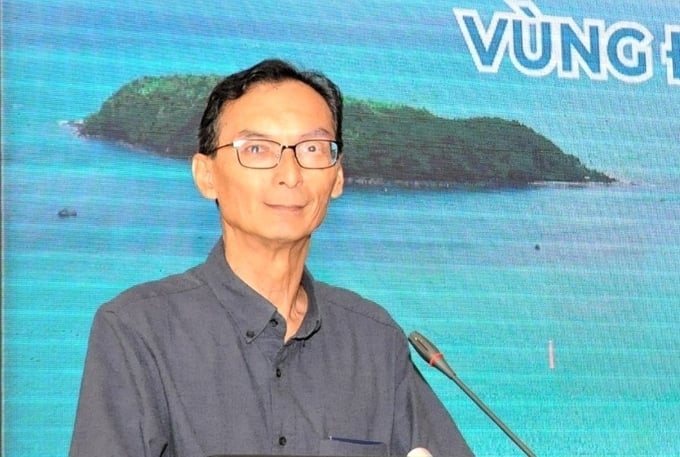
Dr. Andrew Wyatt, MDC Project Director, expressed project goals and ambitions. Photo: Trung Chanh.
"The project will pilot measures to conserve and restore natural resources in the Mekong Delta and has the potential for nationwide replication. It will also conduct training and capacity-building activities, surveys, policy analyses, and demonstration models. We aim to collaborate with central and local governments to integrate project outcomes into planning and investment decisions," shared Dr. Andrew Wyatt.
The anticipated implementation plan for 2024 of the Mekong Delta Coastal Ecosystem Conservation Project comprises three components. Component 1 aims to enhance the effectiveness of marine conservation efforts in Phu Quoc National Park, encouraging business and stakeholder participation in preserving marine biodiversity. Component 2 promotes sustainable management and utilization of aquatic resources in coastal ecosystems. In contrast, Component 3 focuses on protecting the coastal ecosystem in the Mekong Delta through initiatives to restore mangrove forests, safeguard the environment in aquaculture activities, and ensure the livelihoods of the fishing community.
Translated by Quynh Chi

(VAN) Biodiversity is being threatened by traditional remedies made from wildlife. Traditional medicine and humans must change to live in harmony with nature.

(VAN) Agrifood investment and finance solutions for people and the planet.

(VAN) Microplastic contamination has become pervasive in seafood, posing unprecedented challenges for food safety and marine ecosystems.
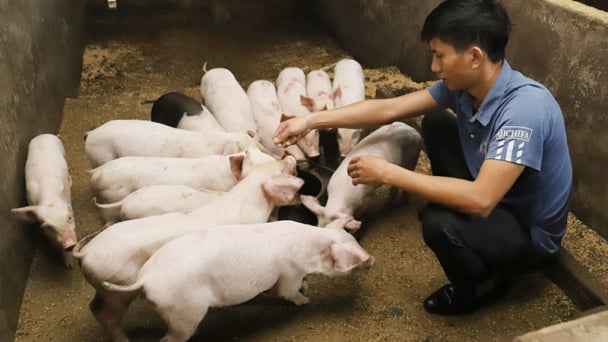
(VAN) Proactively using vaccines, combined with transport control and enhanced surveillance, is the only viable path toward biosecure and sustainable livestock production in Vietnam.
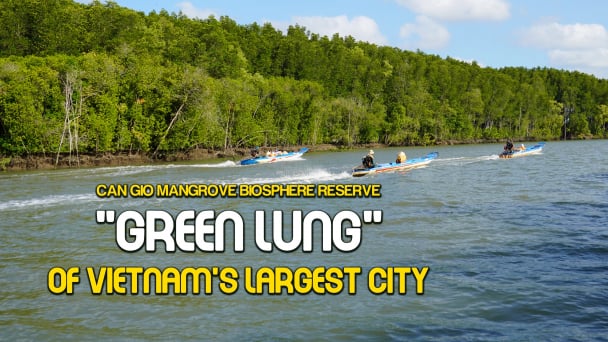
(VAN) Located in the southeast of Ho Chi Minh City, the Can Gio Mangrove Biosphere Reserve is considered the ‘green lung,’ a solid shield protecting the city.

(VAN) To address plastic pollution, closing the plastic recycling cycle will bring significant economic and environmental benefits.

(VAN) According to the Binh Thuan Department of Industry and Trade, in the first five months of 2025, Binh Thuan's dragon fruit export turnover increased by 20.65% compared to the same period last year.